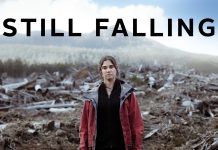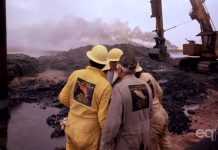There seems to be a lot of bewilderment and doubt around climate change in the public. It’s a difficult story to swallow and to comprehend what it means for humanity. So what do the ordinary people think about climate change in relation to what scientists are trying to convey? And how has the media portrayed this story? The confusion about our changing weather sequences and how they influence global forecast is somewhat justifiable. So what is the correlation between climate change and the weather we are having now? Major changes in our climate may not as be as visible to us as fluctuations in our everyday weather. So how do scientists document and assess global climate tendency, related to local weather changes? Temperature variations due to changing weather circumstances all over the world can be very big. But the worldwide average temperature fluctuates on a much restricted range. So, if a global median temperature was several degrees lower, or even few degrees higher, what kind of weather change would that suggest? There are so many contradictory views in the public eye. So how do scientists react to the popular understanding, that climate is really unstable but that it’s a natural rhythm? What happened with the ozone layer? Most people knew about the ozone layer depletion but very few seem to know how that issue was settled. Climate change is an even bigger scientific adventure and given the intricate nature of it we need to probably relearn the fundamentals of the science behind it. So how much has the Earth actually warmed up? How long ago did scientists discover the greenhouse gases in Earth’s atmosphere? Modern science can actually determine the carbon levels in the atmosphere over recent centuries, but what can scientists tell us about climate variations in the very distant past? And if we had higher atmospheric accumulation of C02 than we have today, what’s the consequence for us?
POPULAR PICKS
LATEST ADDITIONS
© Copyright 2017-2022 - Gratis Global Ltd. All rights reserved.

































